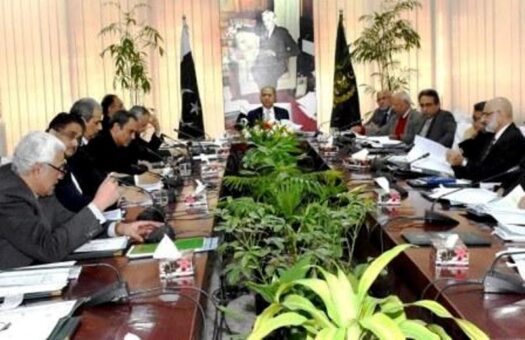ISLAMABAD: Economic Coordination Committee (ECC) of the Cabinet on Tuesday approved an amount of Rs700 million as initial paid up capital for Postal Life Insurance.
A statement said that In order to register Postal Life Insurance as Public Limited Company, ECC approved an amount of Rs 700 million as initial paid up capital.
The amount shall be allocated by the Finance Division and transferred to the proposed Postal Life Insurance Company.
After the approval Postal Life Insurance shall fall under the regulatory frame work of the Securities and Exchange Commission of Pakistan.
Adviser to the Prime Minister on Finance and Revenue, Dr. Abdul Hafeez Shaikh chaired the meeting of Economic Coordination Committee (ECC) of the Cabinet here at the Cabinet Division.
ECC also approved the Creation of Digital Media Wing in the Ministry of Information and Broadcasting. The purpose of the Wing shall be to effectively counter the fake/libelous news and highlight the development agenda of the government.
The ECC directed the MoI&B to move ahead for the creation of the wing by using its already available resources.
ECC also approved the amendment in SRO 192(1)/ 2019 dated 11-02-2019 extending exemption from regulatory duty to export oriented units.
ECC considered and approved the grant of amount Rs 153.25million from the budget of the Ministry of Finance, as technical supplementary grant for the Ministry of Interior, to be given through the Office of the Deputy Commissioner of Islamabad, for compensation to the victims of suicidal attack at District courts F-8 Islamabad on 03-3-2014.
Finance Division supported the proposal in compliance with the orders of the Honorable Supreme Court of Pakistan.
ECC gave approval to the transfer of funds amounting to Rs 31.5 million in equivalent foreign exchange from the Ministry of Interior to the Ministry of Defence as Technical Supplementary Grant for the logistic support for the maintenance of Cessna aircrafts.
ECC was attended by Federal Ministers for National Food Security and Research, Railways, Energy, Privatization and other senior officials of the different Ministries.





